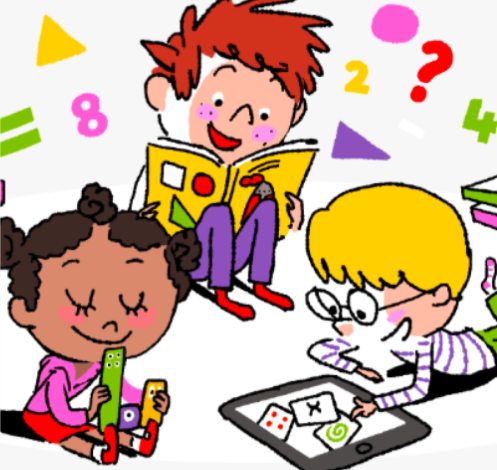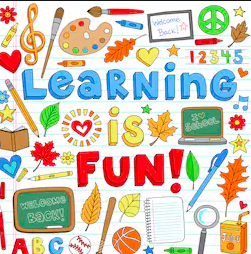As we move through the winter season, below is a link to the Government guidance.
https://www.gov.uk/guidance/people-with-symptoms-of-a-respiratory-infection-including-covid-19
As a school we are continually reviewing our procedures to ensure that we are keeping everyone safe. I have highlighted some key information for you regarding your children, below. There is a lot of information in the link but it is easy to navigate to answer specific questions. This is the guidance we are adhering to in school and will advise you from should you ask.
If you are at all concerned or have any questions, then please contact the school office.
Yours in faith and partnership
Mrs Louise Bury
Children and young people (aged 18 years and under) who have symptoms of a respiratory infection, including COVID-19
Respiratory infections are common in children and young people, particularly during the winter months. Symptoms can be caused by several respiratory infections including the common cold, COVID-19 and RSV.
For most children and young people, these illnesses will not be serious, and they will soon recover following rest and plenty of fluids.
Very few children and young people with respiratory infections become seriously unwell. This is also true for children and young people with long-term conditions. Some children under 2, especially those born prematurely or with a heart condition, can be more seriously unwell from RSV.
Attending education is hugely important for children and young people’s health and their future.
When children and young people with symptoms should stay at home and when they can return to education
Children and young people with mild symptoms such as a runny nose, sore throat, or slight cough, who are otherwise well, can continue to attend their education setting.
Children and young people who are unwell and have a high temperature should stay at home and avoid contact with other people, where they can. They can go back to school, college or childcare, and resume normal activities when they no longer have a high temperature and they are well enough to attend.
All children and young people with respiratory symptoms should be encouraged to cover their mouth and nose with a disposable tissue when coughing and/or sneezing and to wash their hands after using or disposing of tissues.
It can be difficult to know when to seek help if your child is unwell. If you are worried about your child, especially if they are aged under 2 years old, then you should seek medical help.
Children and young people aged 18 years and under
who have a positive test result
It is not recommended that children and young people are tested for COVID-19 unless directed to by a health professional.
If a child or young person has a positive COVID-19 test result they should try to stay at home and avoid contact with other people for 3 days after the day they took the test, if they can. After 3 days, if they feel well and do not have a high temperature, the risk of passing the infection on to others is much lower. This is because children and young people tend to be infectious to other people for less time than adults.
Children and young people who usually go to school, college or childcare and who live with someone who has a positive COVID-19 test result should continue to attend as normal.
Winter Illness information updates.
This link will help you to understand the actions we are adhering to in school to keep us all safe but also to enable the school to continue to move forward to a more normal way of life following Covid 19.
https://www.gov.uk/government/publications/coronavirus-covid-19-early-years-and-childcare-closures/actions-for-early-years-and-childcare-providers-during-the-covid-19-pandemic#control-measures
Please continue to keep yourself and your children safe.
COVID 19 has not gone away.
For your information
Definition of contact
A ‘contact’ is a person who has been close to someone who has tested positive for COVID-19 anytime from 2 days before the person was symptomatic up to 10 days from onset of symptoms (this is when they are infectious to others). For example, a contact can be:
-
People who spend significant time in the same household as a person who has tested positive for COVID 19
-
Sexual partners
-
A person who has had face to face contact (within one metre), with someone who has tested positive for COVID-19, including:
-
Being coughed on
-
A person who has had face to face conversation within one metre.
-
Skin to skin physical contact, or
-
Contact within one metre for one minute or longer without face-to-face contact
-
A person who has been within 2 metres of someone who has tested positive for covid-19 for more than 15 minutes
-
A person who has travelled in a small vehicle with someone who has tested positive for covid-19 or in a large vehicle or plane near someone who has tested positive for covid-19.
Coronavirus – Daily update to all early years, children’s social care, schools and further education providers
Coronavirus (COVID-19):guidance supporting your children's education during coronavirus
This is a difficult and surreal time and we all need to know that there is someone out there to listen. At this difficult time we are always here in school to help. You can telephone or email. There are also a growing number of support groups in place now who are there to give additional support. Mrs Eaborn has been in contact with many parents and is always on the end of the phone should anyone need any support or advice. Mobile number is 07562337321
a. Here2Help:
They are available to providing information, advice and resources. On the website, there are a growing number of resources to help families entertain and educate their children, support their mental health, maintain their wellbeing at home.
b. Starting Well:
c. SEND Local Offer:
The campaign is evolving and developing all the time in response to national guidance and local demand and is there for us all.
Stay safe everyone.
Resources and Activities to help support at home
 |
 |
 |
| Maths Activities | Reading and writing activities | 25 ideas to do at home |